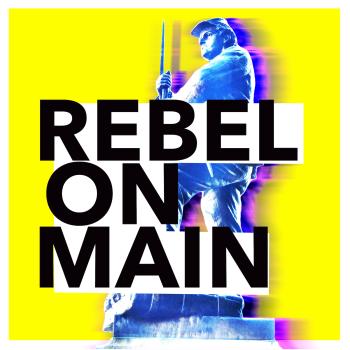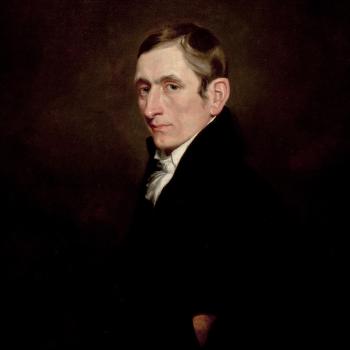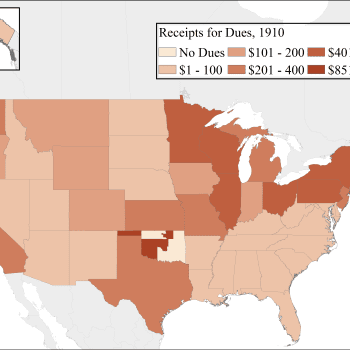When the evangelical poet Phillis Wheatley published an pamphlet-length elegy on George Whitefield upon the great itinerant’s death in 1770, she gained renown as the first published African American woman in history. She was still a slave in Boston at the time, and (perhaps predictably, if she was going to be published) there were only glimmers of anti-slavery sentiment in the elegy. Whitefield himself died a slave owner, and did not free his slaves upon his death. Wheatley, however, focused on Whitefield’s commitment to the gospel: 
Thou didst, in strains of eloquence refin’d,
Inflame the soul, and captivate the mind.
Unhappy we, the setting sun deplore!
Which once was splendid, but it shines no more.
She exhorted Africans to accept Whitefield’s Savior:
Take him ye Africans, he longs for you;
Impartial Savior, is his title due;
If you will choose to walk in grace’s road,
You shall be sons, and kings, and priests to God.
A variant edition put that last line bit more pointedly: “He’ll make you free, and kings, and priests to God.” Wheatley’s poem became a runaway success, with broadside and booklet editions sold in five American cities and in London. She became well-known outside of New England, drawing the admiring attention of George Washington, but only sneers from Thomas Jefferson. In Notes on the State of Virginia, Jefferson wrote that “religion, indeed, has produced a Phyllis Whately [sic], but it could not produce a poet. The compositions published under her name are below the dignity of criticism.”
Wheatley won her freedom in 1773, and in 1774 she produced her most pointed anti-slavery publication, a letter to the Native American evangelical leader Samson Occom. It reflected the emerging evangelical and republican case against slavery, sentiments that would soon foster a full-blown anti-slavery movement in Britain and America. She heralded
“the glorious Dispensation of civil and religious Liberty, which are so inseparably united, that there is little or no Enjoyment of one without the other: Otherwise, perhaps, the Israelites had been less solicitous for their Freedom from Egyptian Slavery; I do not say they would have been contented without it, by no Means, for in every human Breast, God has implanted a Principle, which we call Love of Freedom; it is impatient of Oppression, and pants for Deliverance; and by the Leave of our Modern Egyptians I will assert, that the same Principle lives in us.
God grant Deliverance in his own way and Time, and get him honor upon all those whose Avarice impels them to countenance and help forward the Calamities of their Fellow Creatures. This I desire not for their Hurt, but to convince them of the strange Absurdity of their Conduct whose Words and Actions are so diametrically opposite. How well the Cry for Liberty, and the reverse Disposition for the Exercise of oppressive Power over others agree, – I humbly think it does not require the Penetration of a Philosopher to determine.”
Americans – and Christians, in particular – would do well to introduce themselves to Wheatley. She was a true pioneer on multiple fronts: in American literature, in American women’s history, African American history, the history of American religion, and of the anti-slavery cause. As with Frederick Douglass and other former slaves, there were few who could make so compelling an argument against slavery’s immorality and hypocrisy than those like Phillis Wheatley who had experienced it firsthand.
See also Vincent Caretta’s “Phillis Wheatley: An Eighteenth-Century Genius in Bondage,” a summary of Caretta’s biography of Wheatley.
You can sign up here for the Thomas S. Kidd author newsletter. Each newsletter will update you on what’s happening in the world of American religious and political history. It will contain unique material available only to subscribers, and each will help you keep up with my blog posts, books, and other writings from around the web. [Your e-mail information will never be shared.] Thanks!















